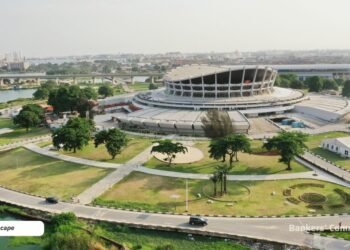Nigeria, often dubbed the “Giant of Africa,” possesses immense agricultural potential. With vast arable land and a predominantly agrarian population, the nation could easily achieve food security and become a major player in global food markets.
However, this promising future remains largely untapped, held hostage by two formidable challenges: pervasive insecurity and a severe deficit in rural infrastructure. Addressing these twin issues is not merely an economic imperative but a matter of national survival and prosperity.
The escalating insecurity across many parts of Nigeria, particularly in the Middle Belt, has dealt a crippling blow to agricultural productivity. Benue State, famously known as the “Food Basket of the Nation” due to its rich soil and significant contributions to Nigeria’s food production, provides a stark and tragic illustration of this crisis. Recent events in Benue underscore the devastating impact of unchecked violence on farming communities.
In June 2025, horrifying attacks in Yelewata in Benue State claimed the lives of dozens, with reports suggesting the death toll could be over a hundred. Families have been displaced, their homes razed, and their farmlands abandoned. The International Organization for Migration (IOM) reported over 500,000 registered Internally Displaced Persons (IDPs) in Benue State as of 2024, which continues to rise.
The economic ramifications of this violence are profound. Farmers, fearing for their lives and livelihoods, are unable to cultivate their lands during critical planting seasons. Crops are destroyed, storage facilities are razed, and market access is severely hampered. A recent study revealed that a one percent increase in insecurity leads to a 0.211% and 0.311% decrease in crop and livestock output respectively in Benue State. The state, which accounts for over 51% of Nigeria’s yam production and is a leading producer of cassava, rice, and soybeans, is witnessing a drastic reduction in its agricultural output. This directly fuels food inflation, pushing millions deeper into hunger and poverty. The once vibrant agricultural landscape of Benue is now characterised by fear, abandonment, and immense losses.
Beyond the immediate human and economic toll, insecurity erodes trust in government and institutions, making it difficult to implement any meaningful agricultural development programs. Farmers are reluctant to invest in their farms due to the uncertainties attributed to insecurities. This cycle of violence and despair starves the nation of its most fundamental resource: food.
However, even if insecurity were to magically disappear, Nigeria’s agricultural sector would still face an uphill battle without significant investment in rural infrastructure. Rural areas, where the vast majority of agricultural activities take place, are largely underserved by basic amenities. Poor road networks make it incredibly difficult and expensive for farmers to transport their produce to markets, leading to significant post-harvest losses. Lack of access to reliable electricity hinders processing and storage, further diminishing the value of agricultural products. Limited access to irrigation facilities means farmers remain heavily dependent on erratic rainfall, making them vulnerable to climate change.
The symbiotic relationship between curbing insecurity and investing in rural infrastructure cannot be overstated. A secured environment provides the foundation for infrastructure development, allowing construction projects to proceed without fear of attack or sabotage. Improved infrastructure, such as good roads, can facilitate quicker deployment of security forces to troubled areas, enhancing response times and potentially deterring attacks.
Investment in rural infrastructure is a catalyst for agricultural transformation. It reduces transportation costs, increases market access for farmers, and encourages value addition through processing. Cold storage facilities, for instance, can drastically reduce post-harvest losses, while improved irrigation systems can boost yields and enable year-round farming. Rural electrification can power small and medium-scale agro-allied industries, creating employment opportunities and diversifying rural economies. Access to information and communication technology, even in remote areas, can connect farmers to market information, modern farming techniques, and financial services.
To unlock Nigeria’s vast agricultural potential, a comprehensive and integrated approach is essential. This begins with establishing a robust security architecture to protect farming communities. The government must prioritize this through increased deployment of security personnel, fostering community-led intelligence gathering, implementing effective conflict resolution mechanisms, and ensuring swift justice for perpetrators of violence. It’s also crucial to address the root causes of farmer-herder conflicts, such as land disputes and resource scarcity, by promoting equitable land governance and establishing designated grazing reserves.
At the same time, massive investment in rural infrastructure is imperative. A national strategy focusing on rural development should prioritize constructing and rehabilitating feeder roads to connect farms directly to markets. This also includes providing reliable electricity through both grid expansion and sustainable renewable energy solutions, developing modern irrigation schemes, and establishing efficient storage and processing facilities. To bridge the significant funding gap in these areas, public-private partnerships should be actively encouraged.
Immediate support for displaced farmers is also critical. For communities, particularly those in states like Benue who have been displaced by violence, urgent assistance is needed to help them return to their ancestral lands and resume their farming activities. This support should encompass providing essential resources such as seedlings, fertilizers, and financial aid, alongside much-needed psychosocial support.
A successful transformation hinges on policy coherence and implementation. There must be a strong political will to effectively implement existing agricultural policies and to create new ones that are responsive to current challenges. This includes vital areas such as land reforms, ensuring easier access to credit for smallholder farmers, and strengthening agricultural extension services.
Nigeria’s agricultural sector is a sleeping giant, capable of feeding the nation and driving economic growth. However, until the twin scourges of insecurity and infrastructural deficit are decisively tackled, its immense potential will remain largely unrealized. The tragic narrative in Benue State serves as a poignant reminder that the path to agricultural prosperity in Nigeria begins with peace and the foundational investments that empower those who feed the nation.
By Diana Tenebe, Chief Operating Officer, Foodstuff Store























